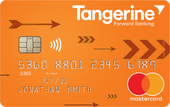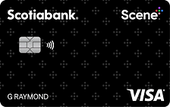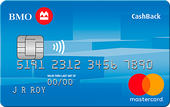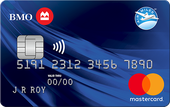Using student credit cards is one of the best ways for young people to establish and start building credit. Of course, there are risks associated with getting a credit card, including overspending and missing payments. But as long as you use the card responsibly and pay back the balance on time, a credit card for students is both a convenient way to pay and a great way to build your credit score.
Student cards usually have no annual fee and lower income requirements, making them the ideal option for young people entering higher education or just starting out in the workforce. Card options are available through a number of different lenders and offer incentives like cash back, travel benefits, air miles, and other rewards.
Why you should get a student credit card
There are a number of reasons a student should consider getting a credit card. If managed properly, credit cards for students are a great way to establish a strong credit history. Having a good credit history improves your credit score, making it easier to get approved for loans and better credit cards in the future.
A second reason is that it provides you with with an extra source of cash if you need it throughout the week, at a time in your life when your income may be irregular or unpredictable. Just make sure you don't spend more on the card than you're able to pay back when the monthly repayment is due, and remember that sometimes other charges like an annual fee may apply.
Credit cards designed for students usually have rewards that younger people care most about. This includes cash back percentages earned at places where they like to shop and eat, as well as point systems and discounts, and even movie tickets. Some also include a welcome bonus, such as extra points or higher cashback for a limited time.
Avoid overspending and paying interest
With your first credit card in your pocket and access to the bank's money, you need to avoid the temptation to spend more than you can repay at the end of the monthly billing period. If you can't repay the full amount, not only will you pay a high rate of interest on the balance, you will also be likely to forfeit your interest-free days on all future purchases until you have repaid the balance in full. It's all too easy to fall into debt, so you need to practice financial discipline.
Alternatives to student credit cards
Getting a credit card for student living may not be something you're ready to do quite yet. If that's the case, there are a few alternative options you can consider that give you the same convenience of using a credit card.
Prepaid card
You can buy prepaid credit cards at most large retailers. These cards can be bought with an amount already on them, or be topped up later with your own cash. You can use prepaid credit cards anywhere a normal credit card is accepted, including online and in stores. Prepaid cards have no annual fee and don't typically expire.
Debit card
A debit card works in a similar way to a prepaid card, but instead of having an amount pre-loaded on the card, it is simply linked to your bank account. As with a prepaid card, you are spending your own money rather than borrowing it, so you will be able to avoid getting into debt. Once again, there's usually no annual fee involved.
Buy Now Pay Later
Another alternative to student credit cards is using the service of a Buy Now Pay Later (BNPL) company. This works by selecting a BNPL option during an online or in-store checkout and creating an account with a BNPL provider like PayBright or Afterpay. They will lend you the money you need for the purchase, with the stipulation that you pay it back through interest-free installments due on specified dates. Interest or late fees only get applied if you fail to pay or miss the due date.
Secured credit card
A secured card is the same as a traditional card, with the exception that you need to put down a deposit as security to open the account. The deposit is refundable after a certain amount of time has passed, as long as you've stayed on top of your repayments. The credit limit you have to work with on a secured card depends on the deposit amount you put down. It's a good way to build a positive credit history.






